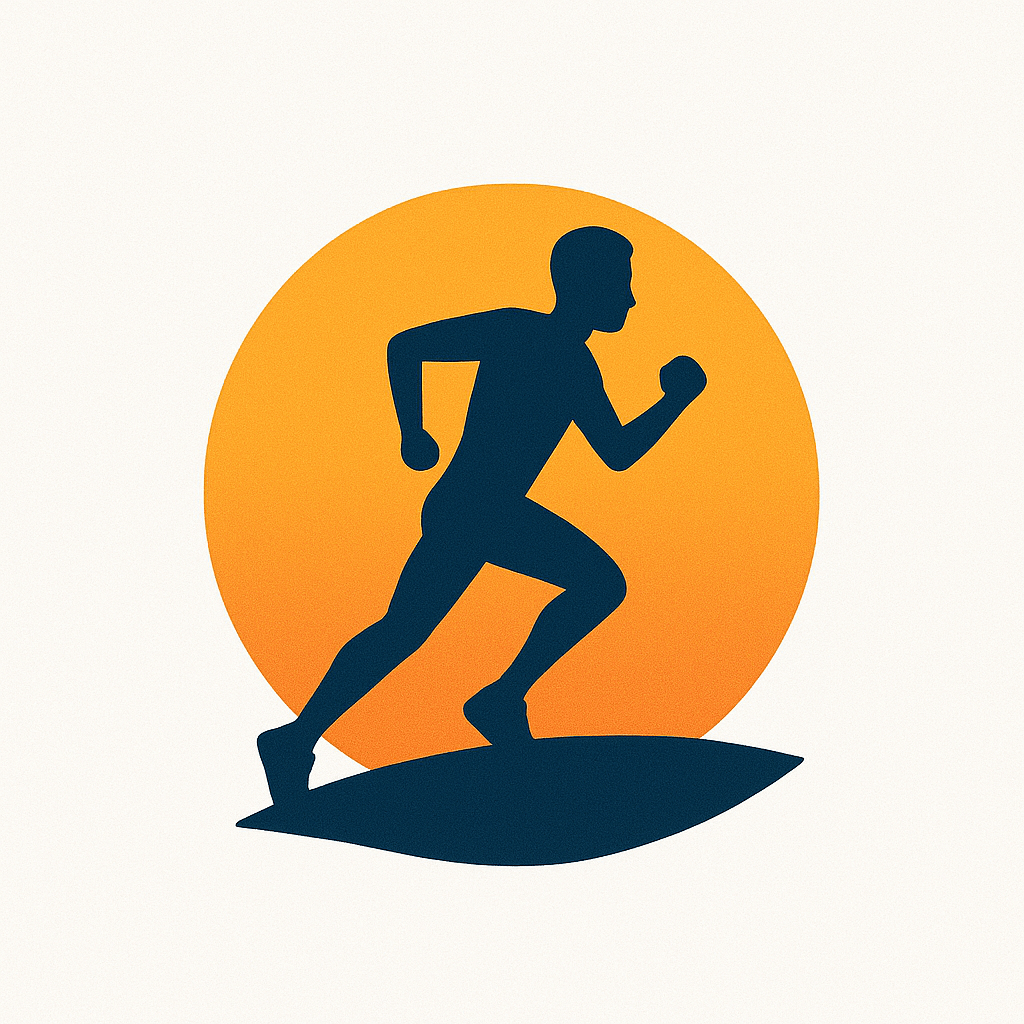The Great Debate Every Runner Has Faced
You want to run. You’re committed. But one question keeps coming up: Should you lace up early in the morning—or save your miles for later in the day?
This isn’t just a logistical choice. It’s an identity crisis for many runners. Are you a sunrise warrior, out there chasing the stillness before the world wakes up? Or are you an evening grinder, letting go of the day’s weight with every step?
The truth is, there’s no universal “best” time to run. But there is a best time for you. And when you find that sweet spot, running becomes less of a struggle—and more of a lifestyle.
So let’s break it down. Here’s how morning and evening runs stack up when it comes to energy, performance, mindset, and habit-building—plus how to choose what works best for your life.
Morning Running: Start Strong, Stay Ahead
Waking up early to run isn’t just a flex—it’s a mindset. It says, “I’m choosing myself before the chaos begins.” And for many runners, that decision changes everything.
☀️ Pros of Morning Runs
1. You set the tone for your day.
Running first thing kickstarts your metabolism and floods your body with feel-good endorphins. You head into the day energized, grounded, and focused.
2. Fewer distractions = fewer excuses.
No meetings, texts, or social media dramas. It’s just you and the road. For people juggling work, parenting, or long days, mornings are a sacred window of uninterrupted time.
3. Cooler temperatures, especially in summer.
If you live somewhere hot, morning runs are usually your best bet for comfort and safety.
4. You’re less likely to skip it.
Life piles up. By evening, energy drains and commitments stack. Morning runners often stick to their routines more consistently.
⚠️ Cons of Morning Runs
1. Waking up is hard—especially in winter.
Dragging yourself out of bed in the dark isn’t always romantic. It takes serious discipline and often sacrifices sleep.
2. You may feel stiff or sluggish.
Your muscles are cold and your joints less mobile early in the day. Without a proper warm-up, injury risk increases.
3. It can interfere with sleep if done too early.
Running before sunrise might force you to compromise on quality sleep, which is counterproductive long term.
Evening Running: Unwind, Refocus, Recharge
If mornings feel rushed or your body isn’t ready to move, the evening might be your time to shine. Nightfall brings a different energy—and for many runners, it’s when they hit their stride.
🌙 Pros of Evening Runs
1. Your body is already warmed up.
By late afternoon, your muscles are loose, your joints are mobile, and your reaction time is faster. Studies show that strength and performance often peak between 4–7 p.m.
2. Running is the perfect post-work reset.
You’ve been sitting, stressed, or overstimulated all day. A run can shake off tension, clear your mind, and help you transition into a restful evening.
3. You may run stronger and longer.
Because you’re fully awake, nourished, and warmed up, evening runs can feel easier and faster than groggy early-morning efforts.
4. It fits better for night owls or busy parents.
Not everyone has the luxury of a quiet morning. For many, evening is when life slows enough to breathe—and run.
⚠️ Cons of Evening Runs
1. Motivation can dip.
After a long day, your willpower tank is often drained. It’s easier to skip a run when the couch is calling.
2. You have less time to recover.
Running late in the evening may reduce your sleep quality, especially if you push hard or finish close to bedtime.
3. It can compete with family, food, or rest.
If your evenings are already full, squeezing in a run might create stress instead of relief.
What Science Says About Timing and Performance
Curious what the research says?
Studies consistently show that afternoon and evening runners tend to perform slightly better. Body temperature peaks, lung function improves, and muscle flexibility is higher later in the day—leading to better endurance, strength, and reduced injury risk.
But here’s the catch: your internal clock (circadian rhythm) plays a major role. Morning people may perform just as well early on because their bodies are primed for it. Evening people? Not so much.
According to a 2019 study in Chronobiology International, runners who trained at their preferred time of day reported better perceived exertion and enjoyment—even if actual performance was equal.
Bottom line: science gives the edge to evenings on paper, but your biology and preferences matter more.
Lifestyle, Goals, and Habit Formation
Here’s where things get real. Let’s take science off the pedestal for a moment and talk about your actual life.
⏱ When Will You Actually Be Consistent?
Consistency beats perfection every time. A short, slow run at a time that fits your life will always outperform the “perfect” run that never happens.
If you’re constantly snoozing alarms, maybe evenings make more sense. If evenings are chaotic, reclaim your mornings.
Habit expert James Clear says, “Make it obvious, make it easy.” Whichever time helps you stick with running most consistently? That’s the winner.
🎯 Matching Your Goals to Your Schedule
- Training for a morning race? You’ll want to practice running at that time.
- Trying to lose weight? Morning runs may help reduce appetite and increase all-day fat burn.
- Battling stress or anxiety? Evening runs can be powerful emotional resets.
- Working on speed or performance? You might see better output in the afternoon or evening when your body is more ready.
Align your running time with the why behind your running.
The Verdict: Which Should You Choose?
So… which is better? Morning or evening?
Truthfully, neither. The best time to run is the time you’ll actually run.
This isn’t about chasing a perfect plan—it’s about designing a running rhythm that works for your body, brain, and life. Test both. Switch it up. Pay attention to how you feel. Then commit to what fits.
Consistency is where the magic happens—not in the clock.
The Best Time to Run Is the Time You’ll Actually Run
If you’ve been waiting for the “right” time to start running, let this be your permission slip: the perfect moment is when you show up.
Don’t overthink it. Don’t obsess over the clock. Morning, evening, or somewhere in between—your run counts.
So ask yourself not what time is best—but what time is best for me to keep showing up?
That’s when the miles start to matter.






Leave a Reply